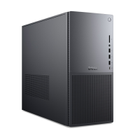- More details have been revealed about Google’s upcoming desktop operating system merger
- A job ad provides information on how this combination of Android and ChromeOS will work
- The plans for ‘Aluminium OS’ look far-reaching and certainly have interesting potential for more affordable AI-enabled desktop PCs and laptops.
We’ve learned more details about Google’s plan to merge Android with ChromeOS to create a new and improved desktop operating system thanks to a job offer.
Android Authority spotted LinkedIn’s announcement (which has now been removed) of a ‘Senior Product Manager, Android, Laptops and Tablets’ based in Taiwan who will be involved in a “new aluminum OS based on Android.”
Take all of this with some seasoning, but it seems to confirm the Aluminum name, or more likely a codename, in the same vein as Chromium, which is the underlying engine for Google’s Chrome browser, as well as revealing more about how this desktop version of Android will work.
We’re told that Aluminum (yes, that’s supposed to be the non-US spelling) will be an operating system with AI at its core (no surprises there), and that Google has far-reaching plans for the platform. Support is mentioned across all form factors: laptops, tablets, 2-in-1s and ‘boxes’ which refer to desktop PCs (which are, after all, large boxes, or even small ones, also known as mini PCs). In addition, support is also planned at all levels, from basic devices to premium devices.
In short, it will be a new desktop platform that will cover all price ranges and device types.
Tellingly, the advertised position is responsible for powering “ChromeOS and Aluminum platforms and devices,” suggesting the two platforms will exist in parallel.
At the same time, the job ad blurb mentions a strategy for “Google’s transition from ChromeOS to Aluminum with business continuity in the future.”
That suggests Aluminum will eventually replace ChromeOS, as expected, but not for some time, with both operating systems running side by side for a transition period.
Possibly long, I guess. Aluminum is clearly the end goal, but there will be a lot to deal with in terms of migrating devices from ChromeOS to Aluminum (where possible given the hardware).
It’s also true that Chromebook is now such a well-known laptop brand that Google surely won’t want to lose the appeal of that name, so ChromeOS could eventually be the name given to Aluminum – it will take over the brand.
As Android Authority notes, Google engineers have called the existing Chromebook platform “ChromeOS without aluminum” or “ChromeOS Classic,” suggesting that aluminum will eventually be the new ChromeOS. And ChromeOS Classic makes a lot of sense as a legacy platform name while remaining on older Chromebooks that live out the rest of their existence.
Analysis: Android desktop dreams (with electric sheep icons?)
It’s exciting to hear more about Aluminum and how Google apparently has plans for this new desktop operating system to take over from ChromeOS, with a transition period before a full replacement (where the newcomer could also take the name).
The theory behind aluminum is certainly more than sound. Linking it to Android in a fundamental way like this (the other codename Google engineers use for the operating system is ‘Android Desktop’ (which could perhaps also be the new name)) has all sorts of advantages. When Google works on Gemini AI features for Android phones, those new capabilities can go directly to the desktop, without requiring any additional effort from coders (avoiding the possibility of some features being neglected and not ported over).
Naturally, Android apps will be supported natively on the desktop and not emulated, which will be great. Aluminum should also help deliver a much better experience for Android tablets, and there’s quite a bit of anticipation for that. (Google will look to seriously challenge the iPad here.)
Of course, if you’re thinking that it’s one thing to create a nifty new desktop operating system that puts ChromeOS in the shade, but another entirely to create a desktop operating system that can support Windows or macOS and live to tell about it, well, you’d be right. No matter how good Aluminum sounds, will it take on Microsoft’s desktop power? No, it won’t be: there are problems related to software support, not to mention games and a number of similar problems, and furthermore, that is not the goal (at least not initially).
In areas where Chromebooks currently dominate (mainly education, but also business), aluminum will surely help Google progress, and that will be one of the main objectives. On the consumer front, we’re looking at the already mentioned exciting possibilities on both desktops and laptops, from native Android apps to the potential for AI tricks galore courtesy of Gemini, all on an operating system that should be heavily optimized and tweaked (we hope).
And no, AI won’t be everyone’s cup of tea by any means, but we may see really affordable laptops with some solid AI features in the near future thanks to aluminum. (Though, to be fair, Copilot+ PCs are already considerably easier on the wallet.)
What is the schedule for all this startup? For now, we’ve been promised that the first incarnation of Aluminum will be out in 2026, but a full release (to the public) likely won’t be ready until next year. And of course, development from there will be a long road, with ChromeOS apparently remaining in parallel. It will be very interesting to see how Google’s big plan for desktop computers develops.

The best computers for all budgets
Follow TechRadar on Google News and add us as a preferred source to receive news, reviews and opinions from our experts in your feeds. Be sure to click the Follow button!
And of course you can also follow TechRadar on TikTok for news, reviews, unboxings in video form and receive regular updates from us on WhatsApp also.




